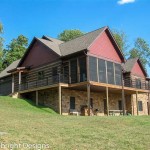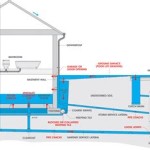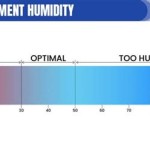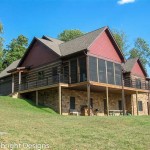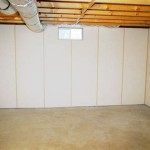Rigid Insulation For Basement Walls
Rigid insulation is a type of insulation that is made from a solid material, such as foam or fiberglass. It is typically used to insulate the exterior walls of a basement, as it is more resistant to moisture and air infiltration than other types of insulation. Rigid insulation can also help to reduce heat loss and improve the overall energy efficiency of a home.
There are several different types of rigid insulation available, each with its own unique advantages and disadvantages. Some of the most common types of rigid insulation include:
- Extruded polystyrene (XPS) is a type of rigid insulation that is made from a closed-cell foam. It is lightweight and has a high R-value, but it is also more expensive than other types of rigid insulation.
- Expanded polystyrene (EPS) is a type of rigid insulation that is made from a open-cell foam. It is less expensive than XPS, but it also has a lower R-value and is more susceptible to moisture.
- Polyisocyanurate (ISO) is a type of rigid insulation that is made from a closed-cell foam. It has a high R-value and is resistant to moisture, but it is also more expensive than other types of rigid insulation.
- Fiberglass is a type of rigid insulation that is made from glass fibers. It is less expensive than other types of rigid insulation, but it also has a lower R-value and is not as resistant to moisture.
When choosing a type of rigid insulation for your basement walls, it is important to consider the following factors:
- R-value: The R-value of insulation measures its resistance to heat flow. The higher the R-value, the more effective the insulation will be at preventing heat loss.
- Moisture resistance: Rigid insulation is typically more resistant to moisture than other types of insulation, but it is important to choose a type of insulation that is specifically designed for use in basements.
- Cost: Rigid insulation can be more expensive than other types of insulation, so it is important to factor in the cost when choosing a type of insulation for your basement walls.
Once you have considered these factors, you can choose the type of rigid insulation that is right for your needs. Rigid insulation is a great way to improve the energy efficiency of your home and reduce heat loss. It is also a relatively easy and inexpensive way to insulate your basement walls.
## InstallationRigid insulation is typically installed on the exterior walls of a basement. It can be attached to the walls using adhesive, mechanical fasteners, or a combination of both. The insulation should be installed in a continuous layer, without any gaps or breaks. It is also important to seal all of the seams and joints between the insulation boards to prevent air infiltration.
Once the insulation is installed, it can be covered with a variety of materials, such as drywall, paneling, or siding. It is important to choose a covering material that is resistant to moisture and termites.
## AdvantagesRigid insulation offers a number of advantages over other types of insulation, including:
- High R-value: Rigid insulation has a higher R-value than other types of insulation, which means that it is more effective at preventing heat loss.
- Moisture resistance: Rigid insulation is more resistant to moisture than other types of insulation, which makes it ideal for use in basements.
- Durability: Rigid insulation is durable and can last for many years.
- Easy to install: Rigid insulation is easy to install and can be installed by a do-it-yourselfer.
Rigid insulation also has some disadvantages, including:
- Cost: Rigid insulation can be more expensive than other types of insulation.
- Can be difficult to work with: Rigid insulation can be difficult to cut and fit, especially in tight spaces.
- Can create a fire hazard: Rigid insulation can be flammable, so it is important to take precautions to prevent fires.

How To Insulate A Basement Wall Greenbuildingadvisor

How To Insulate A Basement With Rigid Insulation Buildwithhalo Com

How To Install Rigid Foam Board Insulation On Basement Concrete Foundation Walls At Improvements

Doe Building Foundations Section 2

Doe Building Foundations Section 2 1 Insulation

How To Insulate Your Basement Like A Pro

How To Insulate A Basement With Rigid Insulation Buildwithhalo Com

Healthy Basement Insulation Systems Quality Built Basements Llc

Make Your Basement More Energy Efficient Carolina Country

Etw Foundation 4 Xps Insulation On The Exterior Of Wall Buildingscience Com
Related Posts
